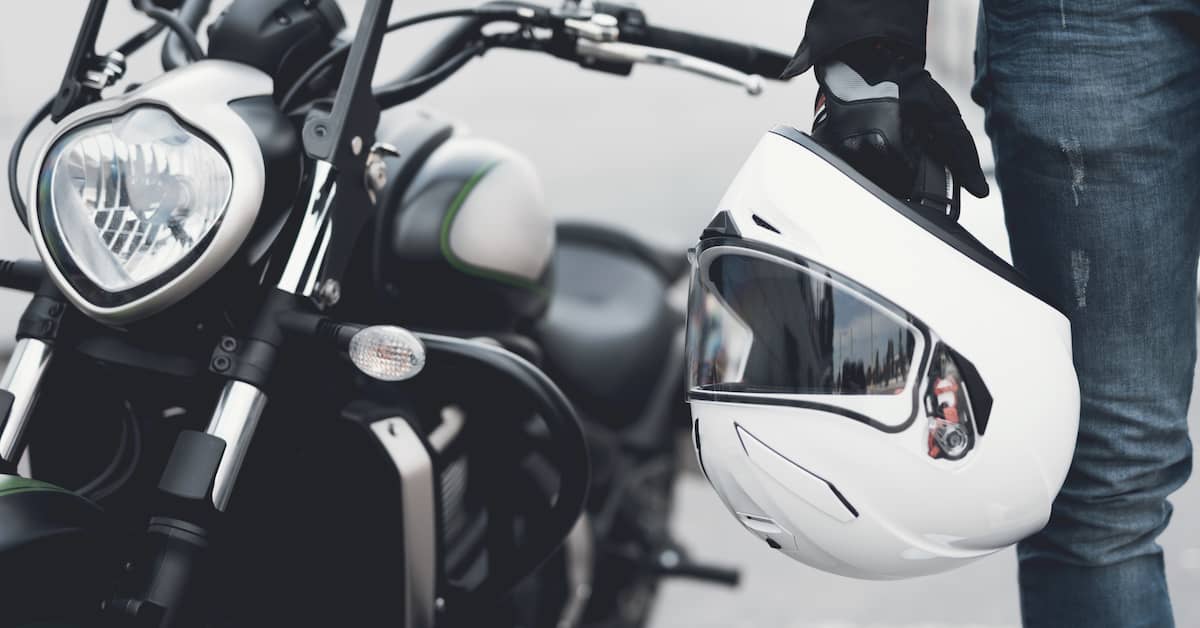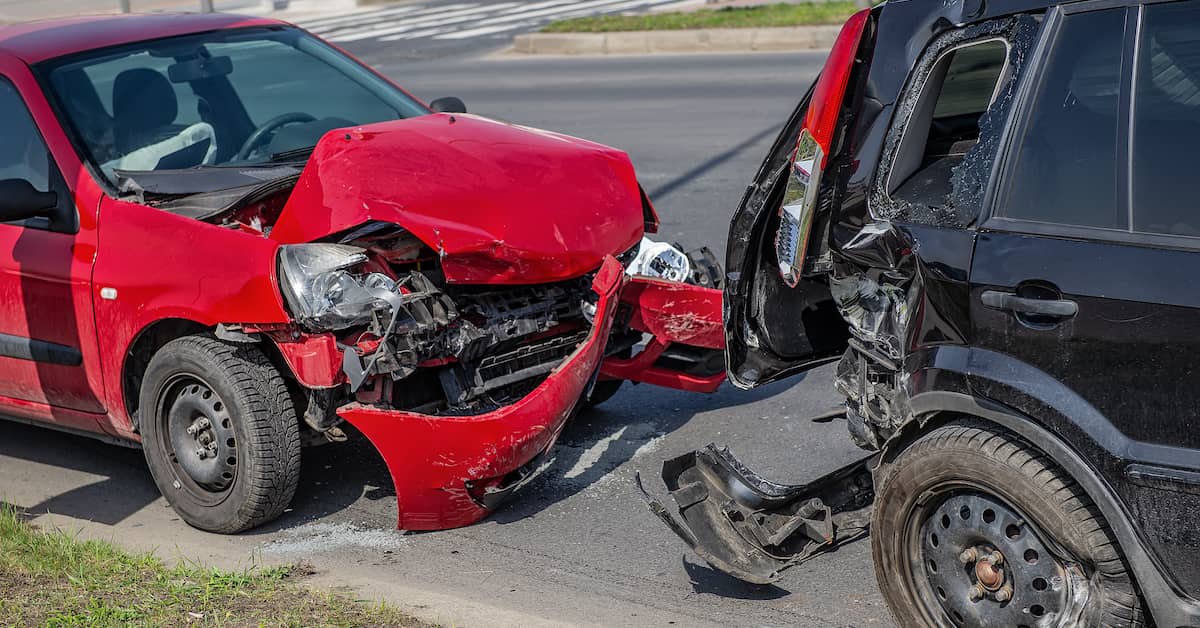
Do You Have To Wear Motorcycle Helmets in New Jersey?
Understanding the laws around motorcycle helmets in New Jersey could save your life and a lot of money. For motorcyclists, wearing a helmet can make an enormous difference in the chances of surviving an accident. However, helmet laws vary from state to state. If you ride a motorcycle in New Jersey, you must abide by the law and take steps to protect your safety.
An experienced New Jersey motorcycle accident attorney can help if you have been injured or lost a loved one in a crash. The laws regarding motorcycle helmets in New Jersey are designed to save lives. However, accidents will happen. A dedicated lawyer can help ensure your rights are protected and the appropriate compensation is sought.
Maggiano, DiGirolamo & Lizzi has extensive experience serving injured motorcyclists and their families throughout New Jersey. Call (201) 585-9111 today for a FREE case review with our Fort Lee office.
What Is the New Jersey Motorcycle Helmet Law?
State law requires motorcyclists to wear motorcycle helmets in New Jersey. Helmets must securely fit the rider’s head and have a strap that wraps around the chin or the neck. The sides of the helmet must also be reflective to improve the rider’s visibility.
Motorcycle helmets worn by riders in New Jersey must also comply with the federal safety standards outlined in 49 CFR § 571.218. If you find a sticker on the helmet that reads “DOT FMVSS No. 218 CERTIFIED,” this is a guarantee from the manufacturer that the helmet complies with federal safety regulations.
Understanding the rigorous standards these helmets must meet can be key to choosing the right one. According to FMVSS No. 218, motorcycle helmets must satisfy specific criteria to ensure maximum safety.
Impact Attenuation
Helmets must significantly reduce the force of impact to minimize head injury. They are tested for their ability to absorb shock using controlled impacts that simulate different accident scenarios. The peak acceleration of the helmet should not exceed 400g, and the duration of excessive accelerations should be minimal.
Penetration Resistance
This test ensures that the helmet can withstand sharp object penetrations during accidents. A pointed striker is dropped onto the helmet from a specified height, and it must not contact the headform inside the helmet.
Retention System Strength
The helmet’s straps must hold it securely in place during an accident. This involves applying a specified load to the retention system to ensure it does not break or stretch excessively.
Peripheral Vision
Helmets must allow a minimum peripheral vision of 105 degrees from the mid-sagittal plane to ensure riders have adequate side visibility, which is crucial for safe riding.
Projections & Surface Contour
The outer surface of the helmet should not have any rigid projections (such as decorative elements) greater than 0.20 inches, and the inner surface must be free of projections that could injure the wearer.
Labeling Requirements
Helmets must display a DOT symbol, the manufacturer’s name, helmet model, size, and production date. They must also include a label indicating compliance with DOT standards, providing assurance of the helmet’s safety features.
Compliance & Testing
To comply with these standards, helmets undergo various conditioning treatments to simulate environmental effects such as temperature extremes and water immersion. They are then subjected to a series of tests designed to measure their performance in important safety aspects.
These standards ensure that all motorcycle helmets provide a fundamental level of protection in various crash scenarios, enhancing the safety of motorcyclists by reducing the risk of severe and fatal injuries. When choosing a motorcycle helmet, look for the DOT certification label, which indicates compliance with these stringent safety standards.
In addition to knowing the requirements for DOT compliance and looking for the sticker on the helmet, you should also make note of any product information. Labels and packaging should include the model and size of the helmet, the year it was manufactured, materials used in the helmet’s construction, and identifying information for the manufacturer.
Reputable manufacturers of motorcycle helmets may also voluntarily submit their products to third-party groups for independent safety testing. You may see additional labels from organizations such as the American National Standards Institute (ANSI), which further indicates that the helmet is safe.
Read More: Helmet Laws in New Jersey
What Should I Do If I Am Injured in a Motorcycle Accident?
If you are injured in a motorcycle accident, taking the right steps immediately afterward can be crucial for your health and any potential legal claims:
- Seek Medical Attention: Even if you believe your injuries are minor, it’s essential to be examined by a healthcare professional. Some injuries may not be immediately apparent due to adrenaline.
- Call the Police: Ensure that the accident is officially documented. A police report is needed for insurance claims and any legal action.
- Gather Information: Collect contact and insurance information from all parties involved in the accident. Also, obtain contact details for any witnesses.
- Document the Scene: If you’re able, take photos of the accident scene, including all vehicles involved, any visible injuries, and road conditions. This visual evidence can support your account of the events.
- Do Not Admit Fault: Be careful not to admit liability or fault at the scene. Even simple apologies can be misconstrued as an admission of guilt.
- Contact a Motorcycle Accident Attorney: Consult with a New Jersey motorcycle accident lawyer who can advise you on your rights and help you handle insurance claims and potential litigation.
- Report the Accident to Your Insurance Company: Inform your insurer about the accident, but consider consulting with your lawyer before providing detailed statements or agreeing to settlements.
Following these steps can help protect your health and legal rights, ensuring you receive the necessary support and compensation.
Can You Get Stopped for Not Wearing a Helmet?
Yes. In New Jersey, you can indeed be stopped for not wearing a helmet while riding a motorcycle. New Jersey law mandates that both motorcycle drivers and passengers wear DOT-approved helmets. Failure to comply with this law can result in fines and penalties, reinforcing the importance of helmet use while riding.
Can I Recover Compensation If I Wasn’t Wearing a Helmet?
Motorcyclists who don’t wear motorcycle helmets in New Jersey and get hurt in an accident often wonder if they can still pursue damages from the other driver. The answer: It depends.
The no-fault law in New Jersey does not cover motorcycle accidents, so you will not have recourse to your PIP insurance for coverage of medical bills and other expenses. However, the comparative negligence rule in New Jersey may enable injured riders to seek compensation even if they were not wearing a helmet at the time of the accident.
For example, if you suffered an injury to your lower extremities in the crash, whether or not you were wearing a helmet has little to do with (a) fault for the accident and (b) the severity of your injuries. On the other hand, if you suffered a brain injury in the accident and you were not wearing a helmet, the defendant and his or her insurance company will likely be able to mount a strong challenge to your claim.
Legally, you can recover damages so long as your share of fault in the accident does not exceed the defendant’s liability. The decision not to wear a helmet can have an adverse impact on the compensation in your case, even if the other driver caused the accident.
What Is the Statute of Limitations for Motorcycle Injury Claims In New Jersey?
In New Jersey, the statute of limitations for filing a motorcycle injury claim is 2 years from the date of the accident. This legal timeframe, established under N.J.S. § 2A:14-2, is critical for victims seeking compensation for injuries sustained in a motorcycle crash. Failing to file within this period typically results in the loss of the right to pursue damages. Injured parties must act promptly to protect their legal rights and ensure they can seek the compensation they deserve.
Contact a New Jersey Motorcycle Accident Attorney Today
Motorcycle crashes are devastating events. Even if you wear a helmet and other protective gear, you are still at risk of serious injury.
Most motorcycle accidents occur due to errors on the part of drivers, not motorcyclists. Unfortunately, riders and their families often have a difficult time recovering the full compensation they are owed.
At Maggiano, DiGirolamo & Lizzi, we are committed to seeking justice on behalf of those who have been seriously injured or lost loved ones in motorcycle accidents. We never back down from challenging cases, achieving significant verdicts and settlements on behalf of our clients and providing hands-on support and guidance every step of the way.
Even when riders are wearing motorcycle helmets in New Jersey, accidents will happen. If you or a loved one have been injured in a motorcycle accident, contact Maggiano, DiGirolamo & Lizzi for a FREE review of your case. Our motorcycle accident attorneys serve clients in Fort Lee and throughout New Jersey.


















